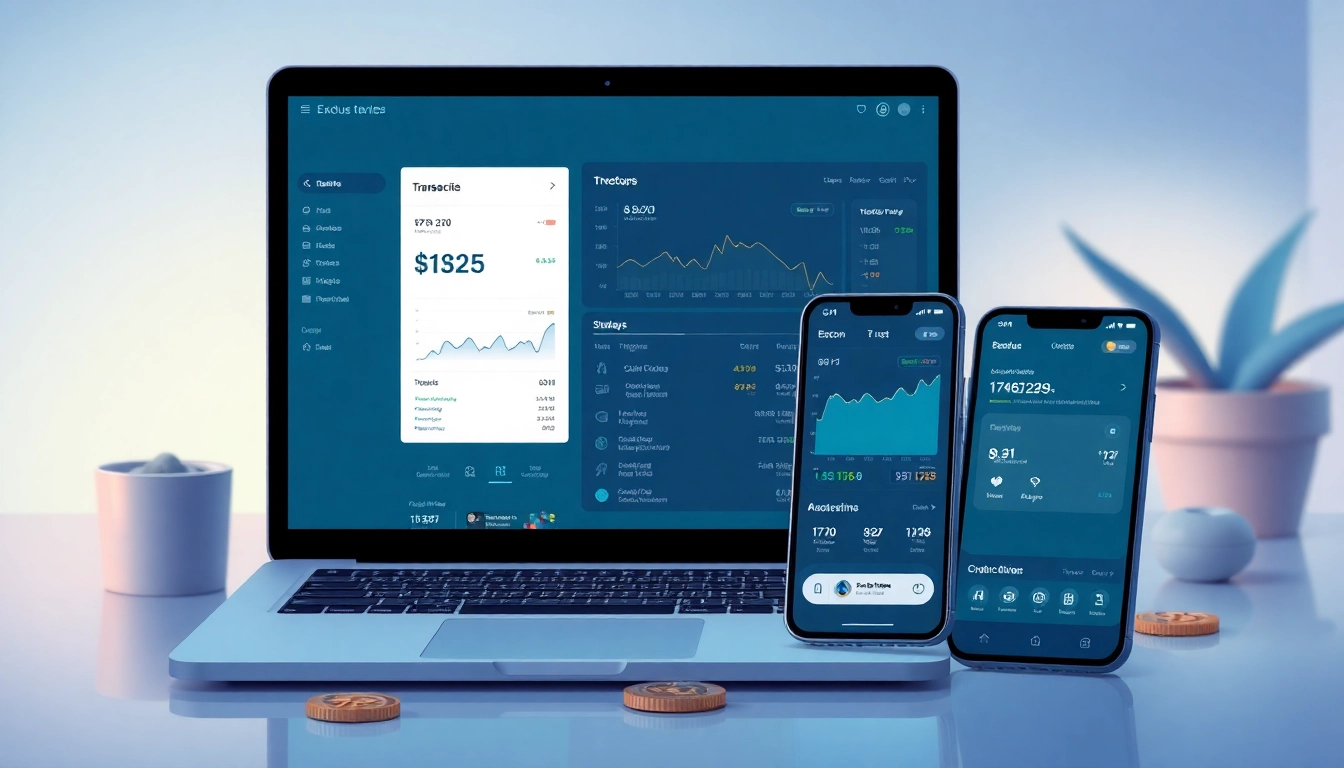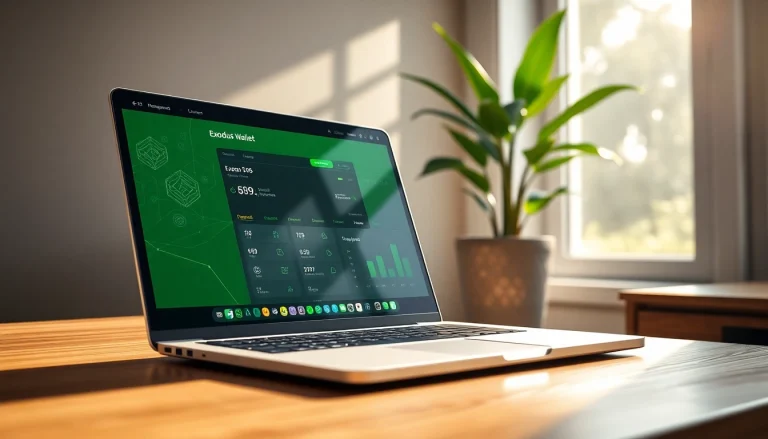What is the Exodus Wallet?
The exodus wallet is a software wallet designed to enable users to manage their cryptocurrency assets in a secure and user-friendly environment. Unlike traditional banking systems, where transactions can be slowed by banking hours and bureaucracy, Exodus allows for seamless transactions, empowering individuals to take control of their own funds.
Introduction to Exodus Wallet Features
Exodus integrates a range of features that cater to both seasoned cryptocurrency traders and newcomers. Its intuitive interface makes it easy for anyone to navigate, while its robust security measures ensure users’ assets are protected. Key features include:
- Multi-currency support: Manage more than 100 cryptocurrencies.
- Integrated exchange: Swap assets within the wallet without relying on third-party services.
- User-friendly interface: Designed for easy navigation and transaction oversight.
- Built-in portfolio tracker: Monitor the performance of your assets in real time.
Supported Cryptocurrencies and Assets
Exodus Wallet supports a wide array of cryptocurrencies, including popular assets like Bitcoin (BTC), Ethereum (ETH), Litecoin (LTC), and many others. In total, users can manage over 1,000 different digital assets. This extensive compatibility allows users to consolidate their crypto assets into a single wallet, simplifying management and reducing the need for multiple accounts across various platforms.
How the Exodus Wallet Works
The Exodus Wallet operates on a decentralized architecture, meaning users retain control of their private keys and funds. Transactions are conducted on the blockchain, ensuring transparency and security. Users can download the wallet as a desktop application or a mobile app, providing flexibility to manage their assets on the go. The wallet also features instant trading capabilities, enabling users to exchange one cryptocurrency for another seamlessly.
Setting Up Your Exodus Wallet
Step-by-Step Installation Guide
Setting up your Exodus Wallet can be accomplished in just a few steps:
- Download the App: Go to the official Exodus website or find it in the App Store or Google Play Store. Ensure you download the authentic app to avoid phishing attacks.
- Install the Software: Follow the on-screen installation prompts, which are straightforward and user-friendly.
- Create a New Wallet: Open the app and follow the instructions to create a new wallet; this includes making a backup of your recovery phrase.
- Sync Across Devices: You can also sync your wallet across multiple devices for greater convenience.
Creating Your Wallet and Securing It
When creating your Exodus Wallet, you will be prompted to set a password and receive a recovery phrase. It is critical to store the recovery phrase securely, as it is the only way to restore access to your wallet if you lose your device or forget your password. The Exodus wallet does not store user data on servers, enhancing privacy and security.
Initial Configuration and Settings
Once your wallet is set up, you can configure various settings according to your preferences. This includes selecting default cryptocurrencies for your home screen, enabling notifications for transactions, and other user-friendly adjustments that tailor the wallet to your usage style. It’s advisable to familiarize yourself with these settings for optimal use.
Using the Exodus Wallet for Transactions
Sending and Receiving Cryptocurrencies
To send or receive cryptocurrencies with Exodus, simply navigate to the “Wallet” section. To send, select the cryptocurrency you wish to send, input the recipient’s address, amount, and confirm the transaction. For receiving funds, you can generate a QR code from the wallet that others can scan for easy transfers.
Exchanging Assets Within the Wallet
The built-in exchange feature allows users to swap cryptocurrencies without leaving the wallet. This is achieved through a simple interface where users can select the currency they wish to trade and the currency they wish to acquire. The fees for trading are clearly displayed before confirming, ensuring transparency.
Managing Transaction Fees
Exodus offers customizable transaction fees based on the urgency of the transaction. Higher fees generally lead to quicker confirmations, while lower fees can result in longer wait times. Users are advised to monitor network conditions to determine appropriate fees for their transactions.
Security Measures of the Exodus Wallet
Cold Storage Versus Hot Wallets
Exodus is primarily a hot wallet, meaning it is connected to the internet and optimizes convenience for the user. However, the wallet does integrate some features typical of cold storage, such as secure backups via recovery phrases. Users who prioritize long-term storage without frequent access may want to consider integrating their Exodus wallet with a hardware wallet for additional security.
Backup and Recovery Options
Backing up your Exodus Wallet is crucial. It can be executed by saving the recovery phrase supplied during the setup. If you ever need to restore your wallet, entering this phrase will allow you to recover your funds. It’s essential to keep this phrase in a secure location that is not accessible to unauthorized users.
Best Practices for Wallet Security
To enhance security for your Exodus Wallet:
- Always use strong, unique passwords.
- Enable two-factor authentication (if available).
- Regularly update your wallet app to take advantage of security enhancements.
- Be cautious of phishing attempts via email or fraudulent websites.
FAQs and Common Challenges with Exodus Wallet
Is the Exodus Wallet Safe from Hacks?
Exodus employs security measures, including encryption of user data and the option for cold storage of private keys. However, as with any digital wallet, it is not entirely impervious to hacks. Users are encouraged to follow best practices regarding security to mitigate risks, such as not sharing sensitive information online and maintaining updated software.
Resolving Common Issues with Exodus
Some challenges users may encounter include transaction delays or difficulties connecting to the network. In these cases, checking the current blockchain status, ensuring the app is up to date, and consulting Exodus support can provide assistance. The active community forums can also yield solutions from other experienced users.
Comparing Exodus Wallet with Other Crypto Wallets
When compared to competitors, Exodus stands out due to its intuitive design and integrated features. While it is not the most secure compared to hardware wallets like Ledger or Trezor, its combination of ease of use and solid security measures make it a strong contender for users new to cryptocurrency. By understanding your requirements for trading, storage, and security, you can better choose between Exodus and other wallets tailored to specific user needs.






